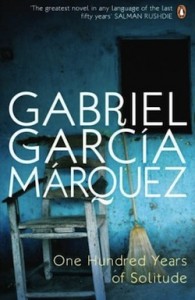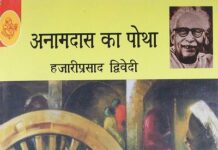The question I have for myself is “How do you review a classic”, something that people want to be made mandatory for the whole human race to be read. Yes; well the only answer I seem to have is that I read it at a certain point in time. Or it chose to come into my life at this time and so it has to be relevant to me. And that is what I can probably talk about.
To me, One hundred years of Solitude was the story of a cycle in the universe, with a city and a family as the metaphor. A sudden surge of enthusiasm leads to the construction of a city. A city which is inhabited by a set of families, that grows with the visitors coming and settling down. Goes through wars whose purpose no one knows. Faces epidemics like insomnia and disasters like floods and finally dies down strangely as predicted in a Sanskrit text. There are many layers in the book. And everything is subject to interpretation based on your stage at the time of reading it.

One hundred years of Solitude can be read as a story of a house, and from where you see everything that goes inside and outside the house. It is a story of seven generations of a family after which the family line ends. A story of a woman who drives the family for generations together. It is a folk tale with flying carpets, fairytales like beauties and magical characters. It has extreme circumstances and the usual ones. Every character in the story creates and lives in its own world, the world of their perceptions. There is occult, there is music, there is romance and there is lust. As a story, it has all the Rasas that you can look for. And the story never gets predictable. The moment you think you know what is being said, there comes a twist.
Names used are so repetitive that I had to keep referring back to the family chart given at the beginning of the book. You start living in the world of Macondo, just like a spectator or the air in that house and town.
Read it if you can…








